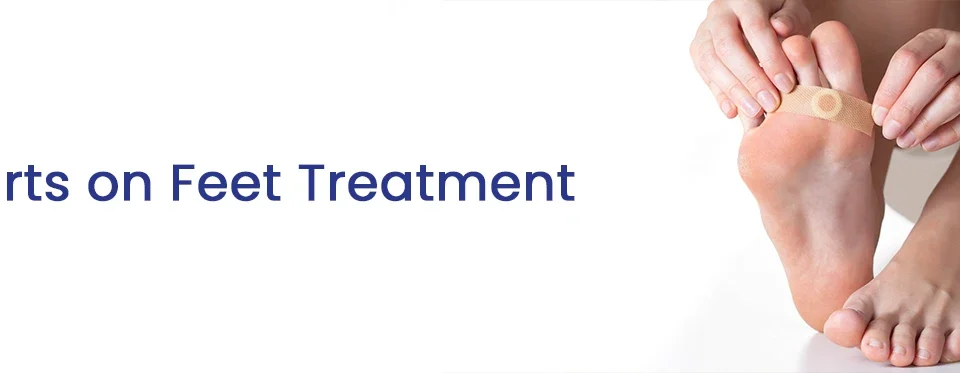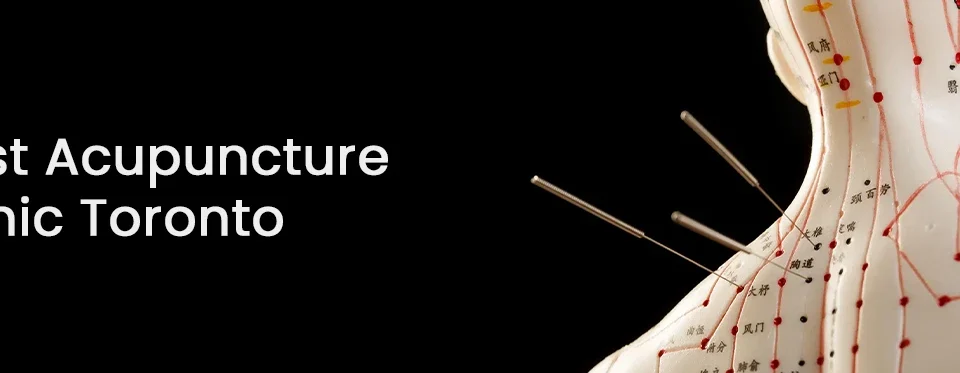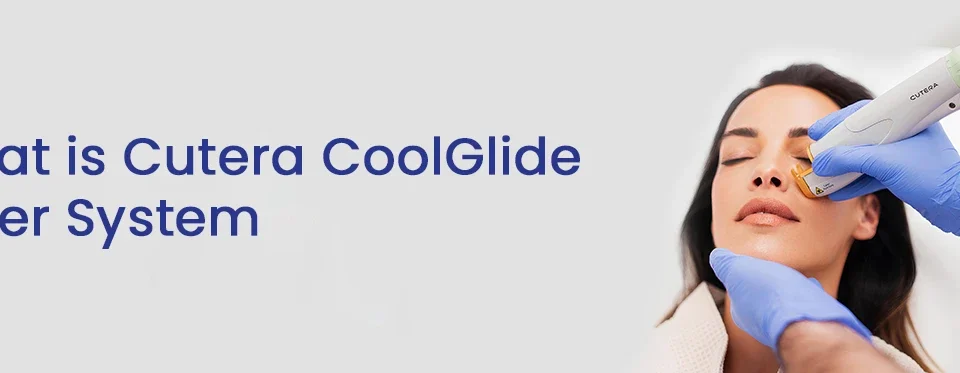
Acupuncture in top of head
July 9, 2025
Best Skin Tag Removal Toronto
July 16, 2025In today’s fast-paced world, anxiety affects millions of people worldwide, creating a significant impact on daily life and overall well-being. While traditional pharmaceutical treatments remain common, many individuals are seeking complementary and alternative approaches to manage their anxiety symptoms. Acupuncture anxiety treatment has emerged as a promising therapeutic option, offering a natural pathway to relief without the potential side effects associated with conventional medications.
This ancient practice, rooted in Traditional Chinese Medicine (TCM), involves the insertion of thin needles into specific points on the body to restore balance and promote healing. The growing body of scientific research supporting acupuncture anxiety relief has attracted attention from healthcare providers and patients alike, making it an increasingly popular choice for those seeking holistic anxiety management.
At Nell Laser & Cosmetic Clinic (Clinic for Age Spot Removal in Toronto, Skin Tags Removal Toronto, Microneedling in Toronto etc), we understand the importance of providing comprehensive treatment options for anxiety management. Our experienced practitioners combine traditional acupuncture techniques with modern understanding of anxiety disorders to deliver effective, personalized care that addresses both physical and emotional aspects of anxiety.
What Is Acupuncture and How Does It Work?
Acupuncture is a medical practice that originated in ancient China over 2,500 years ago. The technique involves inserting sterile, ultra-thin needles into specific points along the body’s energy pathways, known as meridians. According to TCM theory, these meridians carry vital energy called “qi” (pronounced “chee”) throughout the body. When qi becomes blocked or imbalanced, it can manifest as various physical and emotional symptoms, including anxiety.
The process of acupuncture works by stimulating specific acupoints to restore proper energy flow and promote the body’s natural healing mechanisms. Modern scientific research has revealed that acupuncture triggers the release of endorphins, the body’s natural “feel-good” chemicals, while also influencing neurotransmitter levels in the brain. These neurochemical changes can significantly impact mood regulation and stress response.
Contemporary studies have shown that acupuncture affects the hypothalamic-pituitary-adrenal (HPA) axis, which plays a crucial role in the body’s stress response system. By modulating this system, acupuncture help anxiety sufferers achieve a more balanced emotional state and improved stress resilience.
Read More : Best Acupuncture Clinic Toronto
Understanding Anxiety: Symptoms and Traditional Treatments
Anxiety disorders represent one of the most common mental health conditions globally, affecting approximately 40 million adults in the United States alone. These conditions manifest through a complex interplay of psychological, physical, and emotional symptoms that can significantly impair daily functioning and quality of life.
Common anxiety symptoms include persistent worrying, restlessness, fatigue, difficulty concentrating, muscle tension, and sleep disturbances. Physical manifestations often include rapid heartbeat, sweating, trembling, shortness of breath, and gastrointestinal issues. The chronic nature of anxiety can lead to a cycle where physical symptoms exacerbate psychological distress, creating a challenging pattern to break.
Traditional anxiety treatments typically involve a combination of psychotherapy, particularly cognitive-behavioral therapy (CBT), and pharmaceutical interventions such as selective serotonin reuptake inhibitors (SSRIs) or benzodiazepines. While these approaches can be effective, they may also come with side effects including drowsiness, weight gain, sexual dysfunction, and potential dependency issues with certain medications.
Many individuals seek alternatives to conventional treatments due to these side effects or personal preferences for natural approaches. This has led to increased interest in complementary therapies, with acupuncture treats anxiety being recognized as a viable option by both patients and healthcare providers.
How Does Acupuncture Help with Anxiety?
Acupuncture addresses anxiety through multiple mechanisms that target both the physical and emotional aspects of the condition. The practice works by stimulating the parasympathetic nervous system, which is responsible for the body’s “rest and digest” response, counteracting the overactive sympathetic nervous system that characterizes anxiety states.
When needles are inserted into specific acupoints, they trigger the release of various neurotransmitters and hormones that promote relaxation and emotional balance. This includes increased production of serotonin and dopamine, which are crucial for mood regulation, as well as the release of endorphins that provide natural pain relief and promote feelings of wellbeing.
The holistic approach of acupuncture means that practitioners assess not only the anxiety symptoms but also consider the patient’s overall health, lifestyle factors, and underlying constitutional patterns. This comprehensive evaluation allows for personalized treatment plans that address root causes rather than merely masking symptoms.
The Science Behind Acupuncture for Anxiety Relief
Recent neuroimaging studies have provided valuable insights into how acupuncture affects the brain in relation to anxiety treatment. Functional magnetic resonance imaging (fMRI) research has shown that acupuncture can alter activity in brain regions associated with emotional regulation, including the amygdala, hippocampus, and prefrontal cortex.
Clinical research has demonstrated that acupuncture therapy aimed at reducing anxiety in patients with generalized anxiety disorder (GAD) has certain beneficial effects compared to controls. Multiple systematic reviews and meta-analyses have examined the efficacy of acupuncture for anxiety disorders, with findings suggesting positive outcomes for various anxiety-related conditions.
The mechanism by which acupuncture works involves the modulation of the hypothalamic-pituitary-adrenal axis, which governs the body’s stress response. By helping to normalize cortisol levels and other stress hormones, acupuncture can reduce the physiological markers of anxiety and promote a more balanced emotional state.
Key Acupuncture Points for Anxiety Treatment
Professional acupuncturists utilize numerous specific points throughout the body to address anxiety symptoms effectively. These points are carefully selected based on individual patient presentations and traditional Chinese medicine diagnostic principles. The acupuncture points that have some evidence for improving anxiety, or more generally, mood, include Yintang (EXHN3), Heart 7 (HT7), Baihui (GV 20), Shenmen (HT7), and Hegu (LI4).
The selection of appropriate acupuncture points for anxiety depends on various factors including the specific type of anxiety, accompanying symptoms, and the patient’s overall constitutional pattern. Skilled practitioners assess pulse quality, tongue appearance, and other diagnostic indicators to determine the most effective point combinations for each individual.
Treatment protocols typically involve using multiple points simultaneously to create a synergistic effect that maximizes therapeutic benefits. The combination of body acupuncture points with auricular (ear) acupuncture has shown particularly promising results in anxiety treatment, offering both immediate relief and long-term benefits.
Ear Acupuncture Points for Anxiety
Auricular acupuncture, or ear acupuncture, represents a specialized microsystem within Traditional Chinese Medicine that offers unique advantages for anxiety treatment. The ear contains numerous reflex points that correspond to different organs and systems throughout the body, making it an effective treatment location for various conditions including anxiety disorders.
The Shenmen point, located in the upper ear cartilage, is considered one of the most important auricular points for anxiety and stress relief. This point is believed to calm the spirit and promote emotional balance, making it a cornerstone of ear acupuncture protocols for anxiety treatment. Many practitioners begin anxiety treatments with this point due to its rapid calming effects.
Other significant ear points include the Sympathetic point, which helps regulate the autonomic nervous system, and the Kidney point, which according to TCM theory, governs fear and anxiety. The Master Cerebral point is often included to address cognitive symptoms of anxiety such as racing thoughts and difficulty concentrating.
The advantage of ear acupuncture lies in its convenience and the possibility of using semi-permanent ear seeds or pellets that can provide continuous stimulation between treatment sessions. This approach allows patients to experience ongoing benefits and can be particularly helpful for those with severe anxiety who need consistent support.
Body Acupuncture Points for Stress Relief
Body acupuncture points form the foundation of anxiety treatment protocols, with specific locations chosen based on their ability to regulate qi flow and address underlying imbalances. Common selected points include Baihui (DU-20), Shenmen (HE-7), Neiguan (P-6), and Sanyinjiao (SP-6), which is based on traditional Chinese Medicine (TCM) theory of Zang-Fu organs.
The Yintang point, located between the eyebrows, is frequently used for its immediate calming effects and ability to clear the mind. This point is particularly effective for anxiety accompanied by mental agitation and overthinking. Many patients report feeling more centered and focused after stimulation of this point.
Heart 7 (Shenmen) is another crucial point for anxiety treatment, located on the wrist at the end of the heart meridian. This point is considered the primary point for calming the spirit and treating emotional disturbances. It’s particularly effective for anxiety that manifests with heart palpitations or emotional instability.
The Baihui point, located at the top of the head, helps to lift the spirits and clear mental fog that often accompanies anxiety. This point is excellent for patients who experience anxiety with depression or feelings of heaviness. The combination of these points creates a comprehensive treatment approach that addresses multiple aspects of anxiety simultaneously.
What to Expect During Your First Acupuncture Session
The initial acupuncture consultation represents a crucial step in developing an effective treatment plan for anxiety management. This comprehensive assessment goes beyond simply identifying anxiety symptoms to explore the underlying patterns and imbalances that contribute to your condition. Understanding what to expect can help alleviate any concerns and maximize the benefits of your treatment experience.
First-time patients often feel nervous about acupuncture, which is completely normal and understandable. Professional practitioners are experienced in working with anxious patients and will take extra care to ensure your comfort throughout the process. The treatment environment is designed to be calming and supportive, helping you feel relaxed from the moment you arrive.
The entire first session typically lasts between 60 to 90 minutes, allowing sufficient time for thorough evaluation and initial treatment. This extended time frame ensures that your practitioner can gather comprehensive information about your health history, current symptoms, and treatment goals while providing personalized care that addresses your specific needs.
Consultation and Assessment Process
The consultation begins with a detailed discussion of your anxiety symptoms, including when they started, what triggers them, and how they impact your daily life. Your practitioner will also inquire about your medical history, current medications, sleep patterns, stress levels, and lifestyle factors that may contribute to your anxiety.
Traditional Chinese Medicine diagnosis involves several unique assessment techniques that may be unfamiliar to new patients. Your practitioner will examine your tongue, looking at its color, coating, and texture, as these provide valuable insights into your internal health status. They will also take your pulse at multiple positions on both wrists, assessing not just the rate but also the quality, depth, and rhythm.
Other aspects of the assessment may include observing your general demeanor, voice quality, and emotional presentation. Your practitioner might ask about your preferences for temperature, taste, and time of day when symptoms are better or worse. This comprehensive evaluation helps identify your unique constitutional pattern and guides the selection of appropriate acupuncture points for anxiety treatment.
The assessment process is collaborative, with your practitioner explaining their findings and how they relate to your anxiety symptoms. This educational component helps you understand the Traditional Chinese Medicine perspective on your condition and how acupuncture can help restore balance and promote healing.
Types of Anxiety That Respond Well to Acupuncture
Acupuncture has shown effectiveness across a broad spectrum of anxiety-related conditions, with research demonstrating benefits for various types of anxiety disorders. The versatility of acupuncture anxiety treatment makes it suitable for addressing different anxiety presentations, from acute situational anxiety to chronic generalized anxiety disorder.
The individualized approach of Traditional Chinese Medicine allows practitioners to tailor treatments to specific anxiety types and patient presentations. This personalized methodology is particularly valuable given the diverse ways anxiety can manifest in different individuals, ensuring that treatment addresses each patient’s unique symptom pattern and underlying constitution.
Understanding which types of anxiety respond best to acupuncture can help patients make informed decisions about their treatment options. While research continues to explore acupuncture’s effectiveness for various anxiety conditions, current evidence suggests benefits across multiple anxiety disorders.
Generalized Anxiety Disorder
Generalized Anxiety Disorder (GAD) represents one of the most well-studied anxiety conditions in acupuncture research. Positive findings are reported for acupuncture in the treatment of generalised anxiety disorder or anxiety neurosis but there is currently insufficient research evidence for firm conclusions to be drawn, indicating both promise and the need for continued investigation.
GAD patients often experience chronic worry, restlessness, fatigue, and difficulty concentrating, symptoms that align well with Traditional Chinese Medicine’s understanding of energy imbalances and organ system dysfunction. The persistent nature of GAD symptoms makes it particularly suitable for acupuncture treatment, which works gradually to restore balance and strengthen the body’s natural resilience.
Research specifically examining acupuncture for GAD has shown promising results, with studies demonstrating significant reductions in anxiety scores and improvements in quality of life measures. The treatment approach for GAD typically involves regular sessions over several weeks or months, allowing for gradual rebalancing of the nervous system and strengthening of the body’s stress response mechanisms.
Many GAD patients find that acupuncture help anxiety symptoms while also addressing related issues such as sleep disturbances, digestive problems, and muscle tension. This comprehensive approach is particularly valuable for GAD patients who often experience multiple interconnected symptoms that traditional single-symptom treatments may not adequately address.
Social Anxiety and Panic Attacks
Social anxiety disorder and panic attacks represent acute anxiety conditions that can benefit from acupuncture treatment, though the approach may differ from that used for generalized anxiety. These conditions often involve intense fear responses and physical symptoms that can be addressed through acupuncture’s effects on the nervous system and stress response.
For social anxiety, acupuncture points for anxiety that calm the spirit and reduce fear responses are particularly valuable. Treatment often focuses on strengthening the heart and kidney systems in Traditional Chinese Medicine terms, which are associated with courage and confidence. Many patients report feeling more grounded and self-assured after acupuncture treatment.
Panic attacks involve acute activation of the sympathetic nervous system, creating intense physical symptoms including rapid heartbeat, sweating, and shortness of breath. Acupuncture’s ability to activate the parasympathetic nervous system can help counteract these acute stress responses and reduce the frequency and intensity of panic episodes.
The combination of regular acupuncture treatments with emergency acupressure techniques can provide both preventive benefits and acute symptom management for panic disorder patients. Many practitioners teach patients specific acupressure points they can stimulate during the early stages of panic attacks to help prevent full-blown episodes.
Post-Traumatic Stress Disorder (PTSD)
Post-Traumatic Stress Disorder represents a complex anxiety condition that often requires comprehensive treatment approaches. Acupuncture has shown promise as an adjunctive treatment for PTSD, particularly when combined with other therapeutic interventions such as counseling and conventional medical treatment.
PTSD patients often experience hypervigilance, sleep disturbances, and emotional numbing, symptoms that can be addressed through acupuncture’s effects on the nervous system and emotional regulation. The trauma-informed approach used by many acupuncturists recognizes the need for gentle, patient-centered treatment that respects the individual’s trauma history.
Research examining acupuncture for PTSD has shown improvements in sleep quality, nightmares, and overall symptom severity. The treatment approach often involves battlefield acupuncture techniques originally developed for military personnel, which can provide rapid symptom relief and improved stress resilience.
The non-verbal nature of acupuncture can be particularly beneficial for PTSD patients who may have difficulty expressing their trauma experiences verbally. The treatment provides a safe, supportive environment where healing can occur without the need for detailed trauma narrative, making it accessible to patients at various stages of their recovery process.
Cost of Acupuncture for Anxiety
Understanding the financial aspects of acupuncture treatment is crucial for patients considering this approach for anxiety management. The cost of acupuncture varies significantly depending on geographic location, practitioner experience, and treatment frequency, making it important to research options in your specific area.
Many insurance plans now provide coverage for acupuncture treatment, particularly when it’s recommended for specific medical conditions including anxiety disorders. However, coverage varies widely between insurance providers and plans, with some offering full coverage while others may require copayments or have limited session allowances.
The investment in acupuncture treatment should be considered in the context of long-term health benefits and potential cost savings from reduced pharmaceutical expenses and improved overall wellbeing. Many patients find that the comprehensive benefits of acupuncture, including improvements in sleep, stress management, and general health, provide excellent value for their healthcare investment.
Initial consultation fees typically range from $75 to $150, while follow-up treatment sessions generally cost between $60 and $120 per session. Many practitioners offer package deals or sliding scale fees to make treatment more accessible to patients with financial constraints.
Most acupuncture treatment plans for anxiety involve weekly sessions initially, with frequency gradually reduced as symptoms improve. A typical treatment course might include 8-12 sessions over 2-3 months, though some patients may require longer-term treatment for optimal results.
Conclusion
Acupuncture represents a valuable and scientifically-supported approach to anxiety treatment, offering a natural alternative or complement to conventional therapies. The growing body of research demonstrates that acupuncture for anxiety can provide significant relief for various anxiety disorders while addressing the whole person rather than just isolated symptoms.
The effectiveness of acupuncture anxiety treatment lies in its ability to address multiple aspects of anxiety simultaneously, including physiological stress responses, emotional regulation, and overall well being. This comprehensive approach, combined with the minimal side effects and individualized treatment protocols, makes acupuncture an attractive option for many anxiety sufferers.
For those considering acupuncture for anxiety and stress management, working with qualified practitioners who understand both Traditional Chinese Medicine principles and modern anxiety treatment approaches is essential. The integration of ancient wisdom with contemporary understanding of anxiety disorders creates a powerful therapeutic approach that can complement existing treatments or serve as a primary intervention.
At Nell Laser & Cosmetic Clinic, we are committed to providing comprehensive anxiety treatment (Acupuncture in Toronto) options that address both the symptoms and underlying causes of anxiety disorders. Our experienced practitioners combine traditional acupuncture techniques with modern evidence-based approaches to deliver personalized care that supports your journey toward improved mental health and overall wellbeing.
Whether you’re dealing with generalized anxiety, social anxiety, panic attacks, or PTSD, acupuncture offers a safe, effective, and natural approach to symptom management and long-term healing. The investment in acupuncture treatment represents an investment in your overall health and quality of life, providing tools and support for managing anxiety while promoting broader physical and emotional wellness.
FAQ
Does acupuncture really work for anxiety?
Yes, acupuncture has demonstrated effectiveness for anxiety treatment in multiple clinical studies and systematic reviews. Overall, there is good scientific evidence encouraging acupuncture therapy to treat anxiety disorders as it yields effective outcomes, with fewer side effects than conventional treatment. While individual responses vary, many patients experience significant improvements in anxiety symptoms, sleep quality, and overall wellbeing. The treatment works by regulating neurotransmitters, modulating the stress response system, and promoting relaxation through the parasympathetic nervous system.
How quickly does acupuncture work for anxiety?
The timeline for acupuncture anxiety relief varies among individuals, but many patients notice some benefits within the first few treatments. Initial improvements often include better sleep quality and increased relaxation immediately following sessions. More substantial anxiety reduction typically occurs after 4-8 treatments, with optimal results usually achieved after 8-12 sessions. Some patients with severe anxiety may require longer treatment courses. The gradual nature of improvement reflects acupuncture's approach of addressing underlying imbalances rather than just suppressing symptoms.
How many acupuncture sessions do I need for anxiety?
The number of acupuncture sessions needed for anxiety varies based on individual factors including severity of symptoms, duration of the condition, and overall health status. Most practitioners recommend starting with weekly treatments for 6-8 weeks to establish therapeutic momentum. Patients with acute anxiety may see improvements in 4-6 sessions, while those with chronic anxiety might require 10-15 sessions for optimal results. After initial improvement, many patients continue with maintenance treatments every 2-4 weeks to sustain benefits. Your acupuncturist will develop a personalized treatment plan based on your specific needs and response to therapy.




